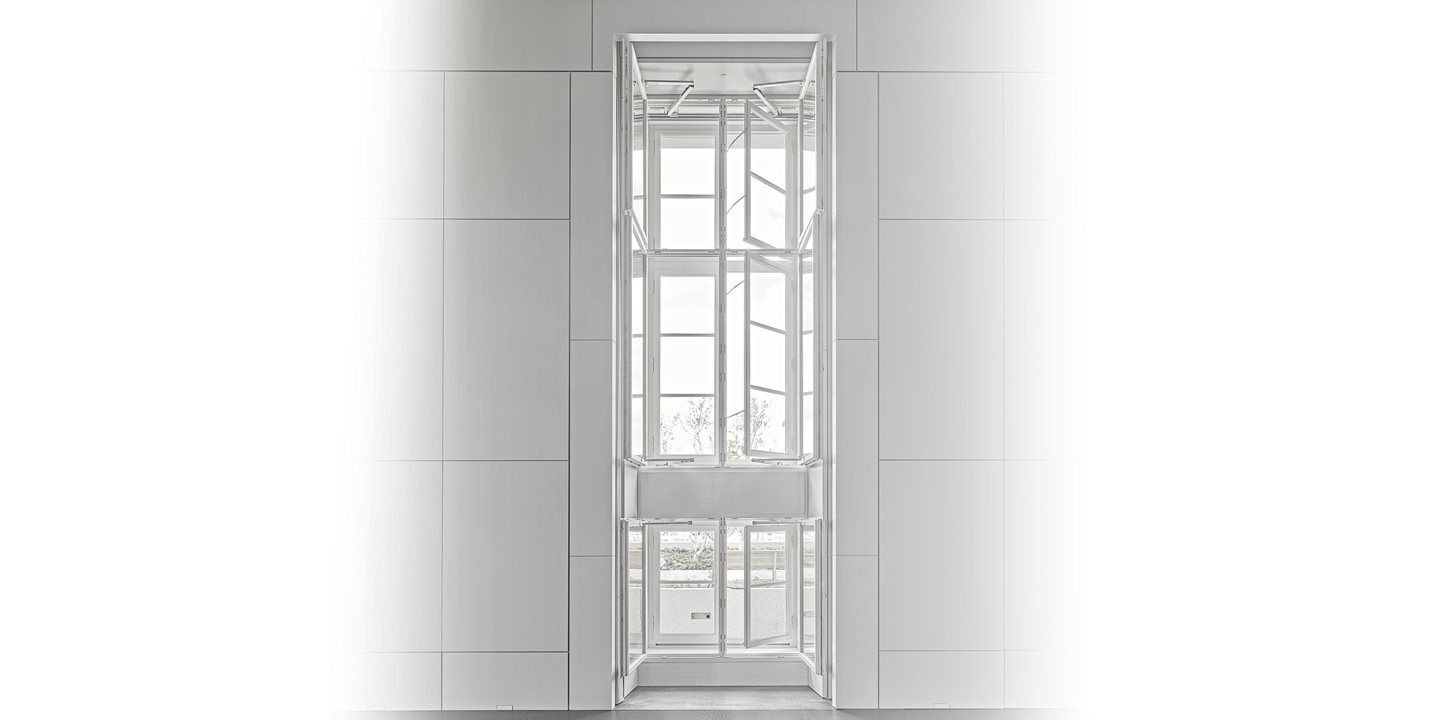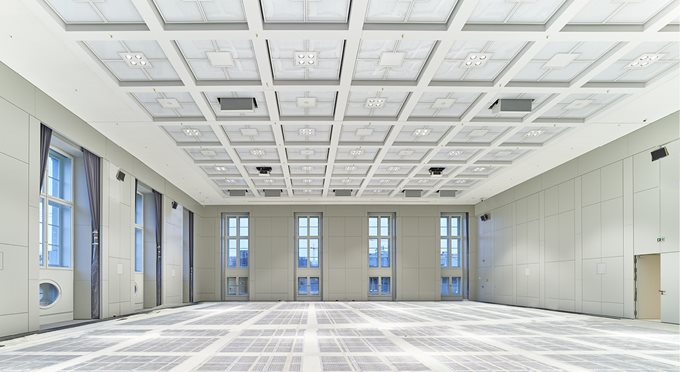
Facts & Figures
| Location | Berlin Spree Island, Germany |
| Architect | Franco Stella |
| Building owner | Humboldt Forum Foundation |
| Building type | Public building, cultural and scientific centre |
| Completion | 2021 |
| indow manufacturer | a.o. WERTBAU GmbH, Langenwetzendorf |
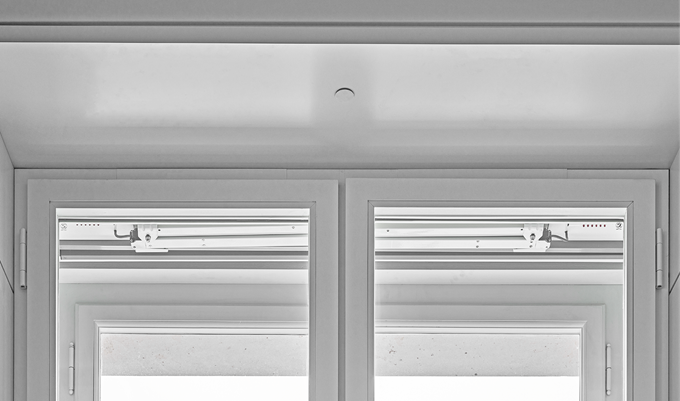
Invisible window technology
The windows had to meet the visual requirements of the old castle façade from the 15th century, but at the same time be equipped with state-of-the-art technology in terms of fire protection. So how do you install chain drives, electric fitting scissors and optical acoustic detectors in box-type windows up to six metres high that open in an emergency to let out smoke, but whose technology should not be seen when closed?
For this purpose, the chain drives of the outer windows were integrated into the mullion in such a way that they are completely concealed when the window is closed. In addition, the SBS500 S electric fitting stays and all visible mounting parts were not only supplied in the RAL colours of the window, but also with the exact same gloss level.
The latest technology in an antique guise
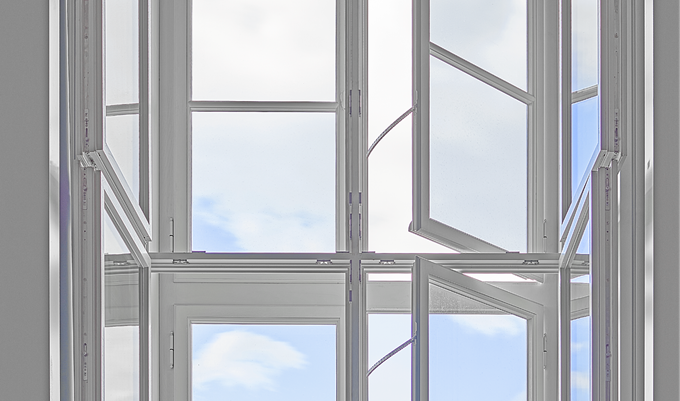
Chain drives
Bringing movement to the wings
The inner side-hung sashes open first: they are each moved to an opening angle of almost 90° by an SBS 500S electric fitting cutter. The outer side-hung sashes follow somewhat later. These are opened to an opening angle of 45° by SKA20-600 chain drives in tandem version.

Electric Fitting Scissors & Opto-Acoustic Detectors
Safety first
In order to be able to mount the electric fitting scissors in the box, HAUTAU had to construct special brackets and sash blocks. These require a special type of installation in order to achieve the required ventilation cross-section. In combination with an additional locking drive for each inner sash, the required tightness and safety requirements are met.
Opto-acoustic detectors (OAM) were additionally integrated into the windows for anti-trap protection in accordance with the Machinery Directive.
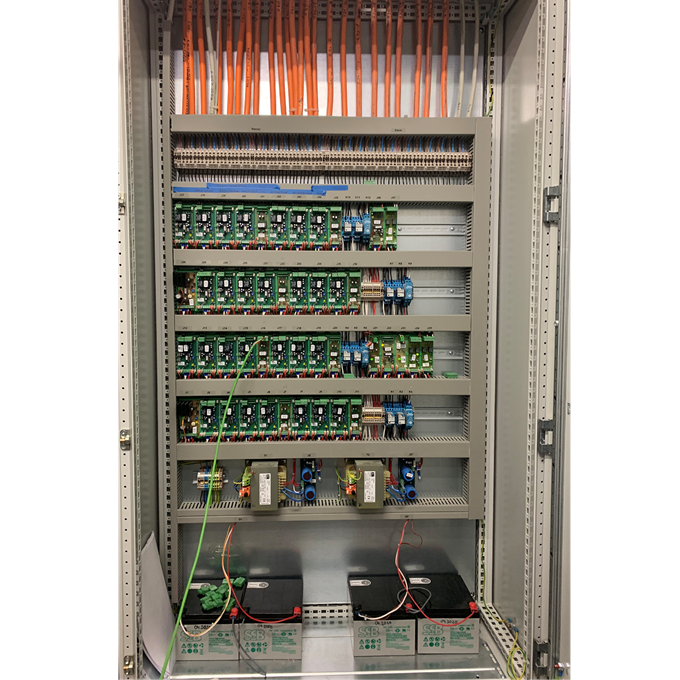
Smoke and heat extraction systems
Smoke leaves
To control the motorised windows, a total of 53 smoke and heat extraction module control units were installed in separate technical rooms. The skylight windows are controlled via a further 87 compact smoke and heat extraction control units installed in floor tanks. This serves to remove smoke after evacuation.

